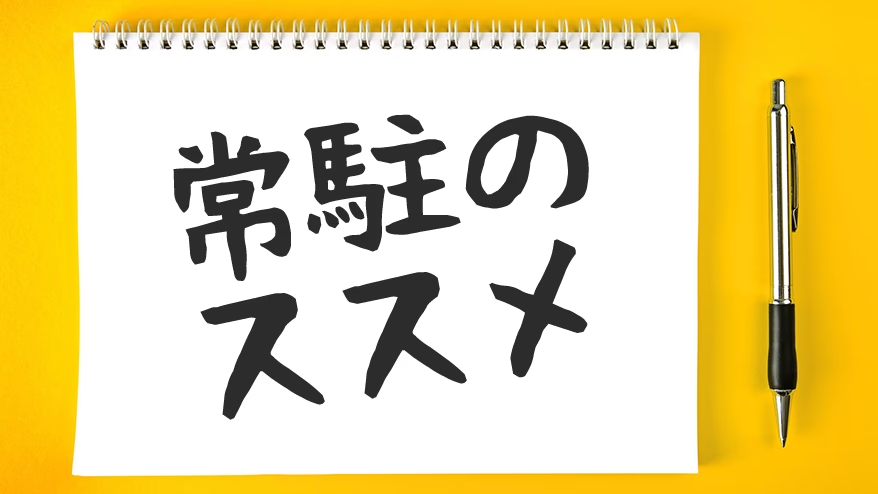こんにちは、プロデュース部の上村です。
モノサスに入社してすでに 11 年目の私ですが、実はここ 3 年ほどは代々木を離れ、とあるクライアント先へ常駐しています。
代々木に行くのは月に数回ほど、あとは基本的にクライアントのオフィスに常駐。
代々木メンバーからは完全にレアキャラ扱いです。
正直、常駐の話が来た時は「こんなに内向的で環境の変化を嫌う私が、常駐なんてつとまるもんだろうか」と不安しかありませんでした。
が、思い切って飛び込んでみたら、モノサスでは学べないこと・経験できないことばかりで、自分自身の成長を感じる、充実した常駐生活を過ごしています。
最近ではモノサスメンバーの中にも、クライアント先に常駐・半常駐する人が増えてきました。そこで今回は、少し先輩ヅラするようですが、私がいつも意識している「常駐の心得」をお伝えしてみたいと思います。
其の一、 1対1 ではなく 1対81 と考えるべし。
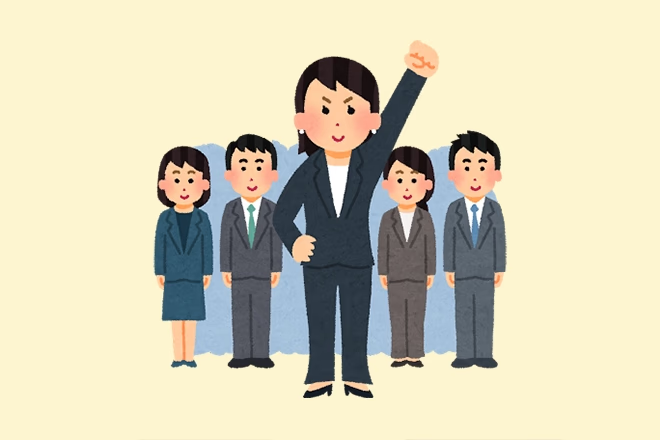
「仲間はいない、たった 1 人で頑張らなくては・・・」
チームではなく、単身でクライアント先に常駐している場合など、ついそんな考えに陥りがちですが、実際はそんなことはありません。
クライアントは「◯◯さん」という個人に仕事を依頼しているわけではなく、「モノサスの◯◯さん」に仕事を依頼しています。つまり、◯◯さんの後ろにある 80 人の「モノサスのちから」を信頼して、お仕事をいただいているのです。
物理的にもスキル的にも、1 人の力には限界があります。どんなに優秀な人が頑張ったとして、結果が 1.5 倍にはなっても、2 倍 や 3 倍 にはなりません。
ところが、自分の後ろには色んなスキルや知見を持った 80 人ものモノサス社員がいる、と思えば、トラブルが起きたとき、一気に物事を進めたいとき、視野を広げたいときに、どんどん人のちからを借りることができます。これはフリーランスの人や、派遣の人ではできない、会社に所属しながら常駐契約している人にだけ出せる、必殺技です。
1人 + 80 人の力を借りることができる、という事実こそが、「モノサスの◯◯さん」の価値であり、何よりの強みではないでしょうか。
自分では力不足だ...と肩を落とす前に、ぜひ胸を張って、「自分だけでは無理ですが、モノサスの中で声をかければやれます!」と言いましょう。
其の二、常に代々木にアンテナを向けるべし。
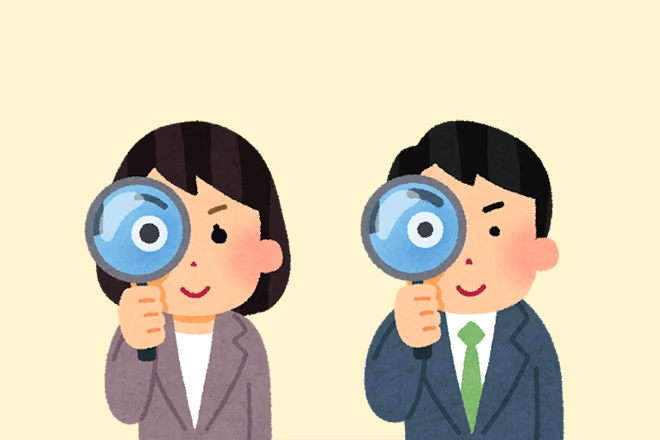
これも「常駐あるある」の 1 つですが、常駐先であまりに一生懸命になるあまり、ついモノサスのことを疎かにしがちになります。
クライアント先に常駐していると代々木に行く機会も減ってしまうので、物理的に他のメンバーと話す時間も減り、今だれが何をやっているのか全然知らない浦島状態...なんてことになってしまいます。
しかし最初の心得でお伝えしたように、「80 人のちからを借りれます!」と言うためには、モノサスの中にアンテナを向けて、情報や動向をキャッチしておく必要があるのです。
急にこんなこと言うと何事かと思われる気がしますが、人はどんどん成長します。代々木を離れてみるとすごくわかります。数ヶ月前にはまだ案件を 1 人で回せなかったあの人が、あんなことができるように!とか、あの人は前の職務とは全然違うことをやり始めている!とか、少し離れるだけで本当に知らないことがたくさん出てきます。
その情報をたくさん持っていれば持っているほど、自分の中の 80 人の引き出しが増えていきます。浦島状態になって、80 人の引き出しが 5 人、3 人になってしまわないよう、常に社内の人の動きを気にかけておきましょう。
ちなみに、キャッチする方法は人それぞれです。
- 社内 SNS を活用する
- 積極的に社内イベントに参加して顔を広げる
- 代々木にいる日にたくさんの人を誘って飲み行く
-
情報屋的にみんなの動向をキャッチしている人を頼る
ちなみに私は 4 番目で、社内に目が行き届きまくっている情報筋から、「◯◯さんが今こんなことしてるっちゃん〜」とか「XXくんは最近これができるとよ〜」と常に最新情報を仕入れています(ありがとう)。
其の三、仕事を職人化するべからず。
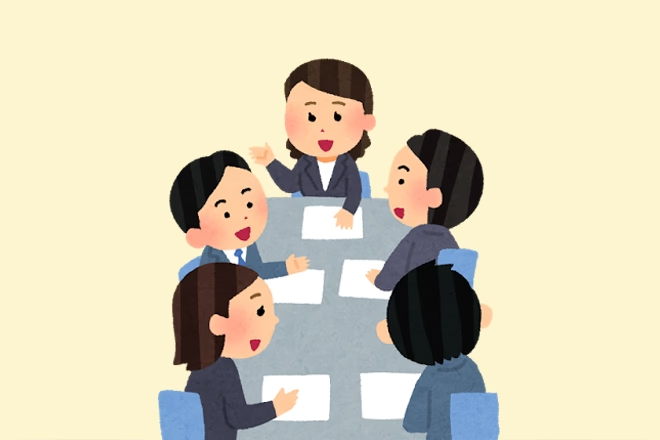
続いて、少し視点を変えて、クライアント先での仕事のやり方についてお話します。
常駐というのは期間限定のものです。どんなに自分の仕事がクライアントの役に立っていても、ずっと常駐し続けるというケースはまずありません。契約期間が終わる、プロジェクト自体が終わる、自分以外のメンバーが代わりに常駐する、などなど理由は様々ありますが、「今、自分がやっている仕事を、今後ほかの誰かがやる」ということを常に意識して仕事をする必要があります。
社内で仕事をするときには、「あの仕事は彼しかできない」というのは褒め言葉になるかもしれませんが、期間限定の常駐では今後の仕事の支障にしかなりません。
そこで私自身が何を意識しているかというと、
- 仕事のプロセスを明文化する
- 自分がやったことを常に周りに共有する
というたった 2 点だけです。
明文化というとなんかマニュアルとか、引継書とか大層な物に思われがちですが、すごく単純で、ただただ仕事の初めから終わりまでをものすごく細かく、実務ベースでタスクリストに落としているだけです。
自分の仕事の全行程をタスクリストに落としていくと、「考えなくてもできること」「考えないとできないこと」というのがきちんと棚卸しされます。
職人化(◯◯さんしか出来ない)のやっかいなところは「考えなくてもできること」までブラックボックスの中に入ってしまうことです。しかし、タスクリストさえ作っておけば、次の誰かが同じ行程でやれば、少なくとも「考えなくてもできること」はうまくいくはずです。
次に、周りへの共有については、 こまめにチーム内でミーティングしたり、その議事録を残すことで、後から「あの人そう言えば、あの時あんなこと言ってたな〜」と思い出してもらうだけです。メールの cc: に巻き込んでしまう、なんていうのもありです。こうすることで「考えないとできないこと」の “考え方” 自体をまるごと共有してしまうことができます。
どちらも簡単で、誰でも、明日からでもできることですが、「自分がいなくなっても仕事が回る環境をつくる」というのは、実は何より重要で責任重大な常駐のミッションなのです。
ちなみにこれをやっておくと、自分が病気で休んだり、やむを得ず他の仕事で手一杯になったときも、チームの人がフォローに入りやすくなるので、本当にオススメです。
其の四、お互いのカルチャーを「いいとこどり」すべし。
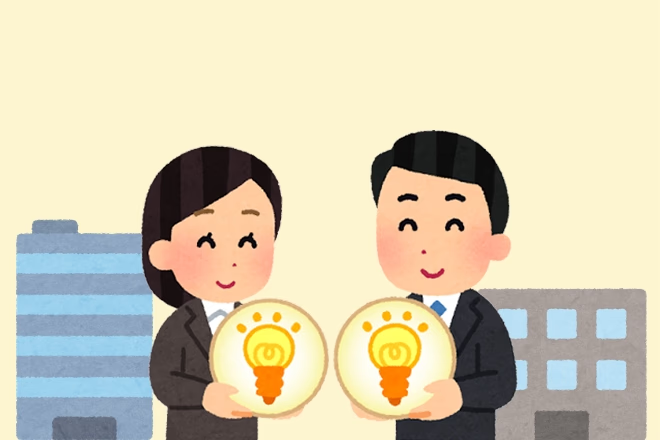
最後に、これぞ常駐の醍醐味ともいえるのが「自社以外の新しいカルチャーと出会えること」です。
どんなに本を読んでも人から話を聞いても、転職でもしない限り、自社以外のカルチャーと直に触れ合える機会はありません。ところが常駐となると、ある日突然、他社の中に入っていき、その会社のカルチャーにダイレクトに触れることになります。
今まで出会ったことのない価値観を知ったり、この人すごい!と思う人に出会うことで、個人としてスキルアップすることはもちろん、常駐先のいいところを、自社に持ち帰って取り入れることが可能になります。
例えば、モノサスにもたらされた大きな「いいとこどり」としては、書類や企画書などのクラウド化が劇的に進みました。クラウド化されたことで、働く時間や場所にとらわれず、遠隔地同士で仕事をしたり、ドキュメントを同時共有して仕事を進めることなどが可能になり、働き方が大きく変わったのです。
モノサスが目指す「仕事や暮らし方を自由に」という方針と、他社のカルチャーの良い部分が融合し、モノサスに一つの新しいカルチャーが生まれる。これは逆も可能で、こうしたほうがうまくいくかも...という自社のカルチャーがあれば、どんどん常駐先に提案してみたっていいわけです。
常駐している自分が橋渡し役となり、常駐先と自社、どちらにもいいカルチャーをもたらすことができたら「常駐冥利」につきるなと思っています。
さて、ここまで常駐の心得を 4 つほどお伝えしてみましたが、お読みいただいて「社内で働くときの心得と、たいして変わらないじゃん」と思われる方がいるかもしれません。
その通りです。
社内にいようが社外にいようが、仕事の心得は基本的に変わらないと思います。
ただ、社内にいると「なあなあ」で済ませられたことが、他社に常駐していると「より必要に迫られる」ということかもしれません。だからこそ、社内ではできなかった成長ができるんだと思います。
この先、常駐先からモノサスに戻ったときに、自分が一回り大きくなっているだろう、なってるといいな...そう思いながら、今日も代々木から数キロ離れた場所で頑張る毎日です。
